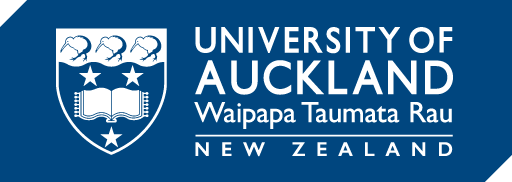We are planning a workshop in December. The first announcement from Arkadii Slinko:
The Centre for Mathematical Social Science at The University of Auckland (New Zealand) is planning a series of lectures and seminars given by visitors
and members of the Centre in the period of 13–22 of December 2010. At the moment the following visitors have expressed their intention to participate and give lectures:
– Clemens Puppe (KIT, Karlsruhe)
– Bill Zwicker (Union College, New York)
– Toby Walsh (University of NSW and NICTA)
– Igor Shparlinski (Macquarie University, Sydney)
This will be accompanied by discussions of future research directions and research collaborations in small groups with participation of visitors and local researchers including PhD and graduate students. The talks will take place in mornings and in the afternoon we will have sessions for discussions on topics relevant to the lectures.
======================
TOPICS AND DATES:
13 Dec (Monday) – Registration. Welcoming drink at Old Government House.
14 Dec (Tuesday) – Simple games and Secret Sharing.
15 Dec (Wednesday) – Cryptography.
17 Dec (Friday) – Comparative probabilities and simple games.
20 Dec (Monday) – Voting theory.
21 Dec (Tuesday) – Uncertainty, Ambiguity and Choice.
The exact schedule for each day will be announced later. During the weekend 18-19 of December we are planning an excursion.
======================
APPROXIMATE SCHEDULE:
Simple Games and Secret Sharing (organiser Arkadii Slinko)
1. Arkadii Slinko – Complete simple games and hierarchical secret sharing schemes.
2. Bill Zwicker – Hereditary rough weigtedness in simple games.
3. Ali Hameed – Weighted and roughly weighted ideal secret sharing schemes.
Topics for discussions in the afternoon session: simple games and secret sharing schemes, hereditary rough weightedness and its
characterisations, hierarchical simple games (access structures) and their properties.
Cryptography (organiser Steven Galbraith)
1. Igor Shparlinski – Group structures of elliptic curves over finite fields
2. Steven Galbraith – Introduction to “Learning With Errors” and lattice-based cryptography
3. Edoardo Persichetti – Compact McEliece keys using quasi-dyadic Srivastava codes
Topics for discussions in the afternoon session: Cryptography from codes, Homomorphic encryption, Lattices in cryptography.
Comparative probabilities and simple games (organiser Arkadii Slinko)
1. Arkadii Slinko – Abstract simplicial complexes which are initial segments of comparative probability orders
2. Tatyana Gvozdeva – On Edelman’s conjecture about simple games obtained from comparative probability orders
3. Ilya Chevyrev – On the number of facets of the convex polytope of a comparative probability order.
Topics for discussions in the afternoon session: Edelman’s conjecture, characterisations of weighted simple
games by polytopes
Uncertainty, Ambiguity and Choice (Organiser Matthew Ryan)
1. Clemens Puppe – “Majoritarian Indeterminacy and Path-Dependence: The Condorcet Efficient Set”
(based on joint work with Klaus Nehring and Markus Pivato)
2. Matthew Ryan – Abstract Convex Geometries and Decision Theory
3. Patrick Girard, Jeremy Seligman – Logic of Social Choice
Topics for discussions in the afternoon session: Abstract convexity in decision theory; abstract convexity in social choice; modal logic for ambiguous semantics.
Voting Theory (organiser Mark Wilson)
1. 1. Bill Zwicker – “The Geometry of Influence: Weighted Voting and Hyper-ellipsoids,” joint work with Nicolas Houy.
2. Toby Walsh – Manipulation of Borda and related voting rules
3. Reyhaneh Reyhani – Dynamics in voting games
4. Egor Ianovski – Safe manipulation of Borda
Topics for discussions in the afternoon session: Manipulation of Borda and related voting rules,
Manipulation with partial information, Lotteries and voting rules. Interplay between manipulability and decisiveness

Recent Comments